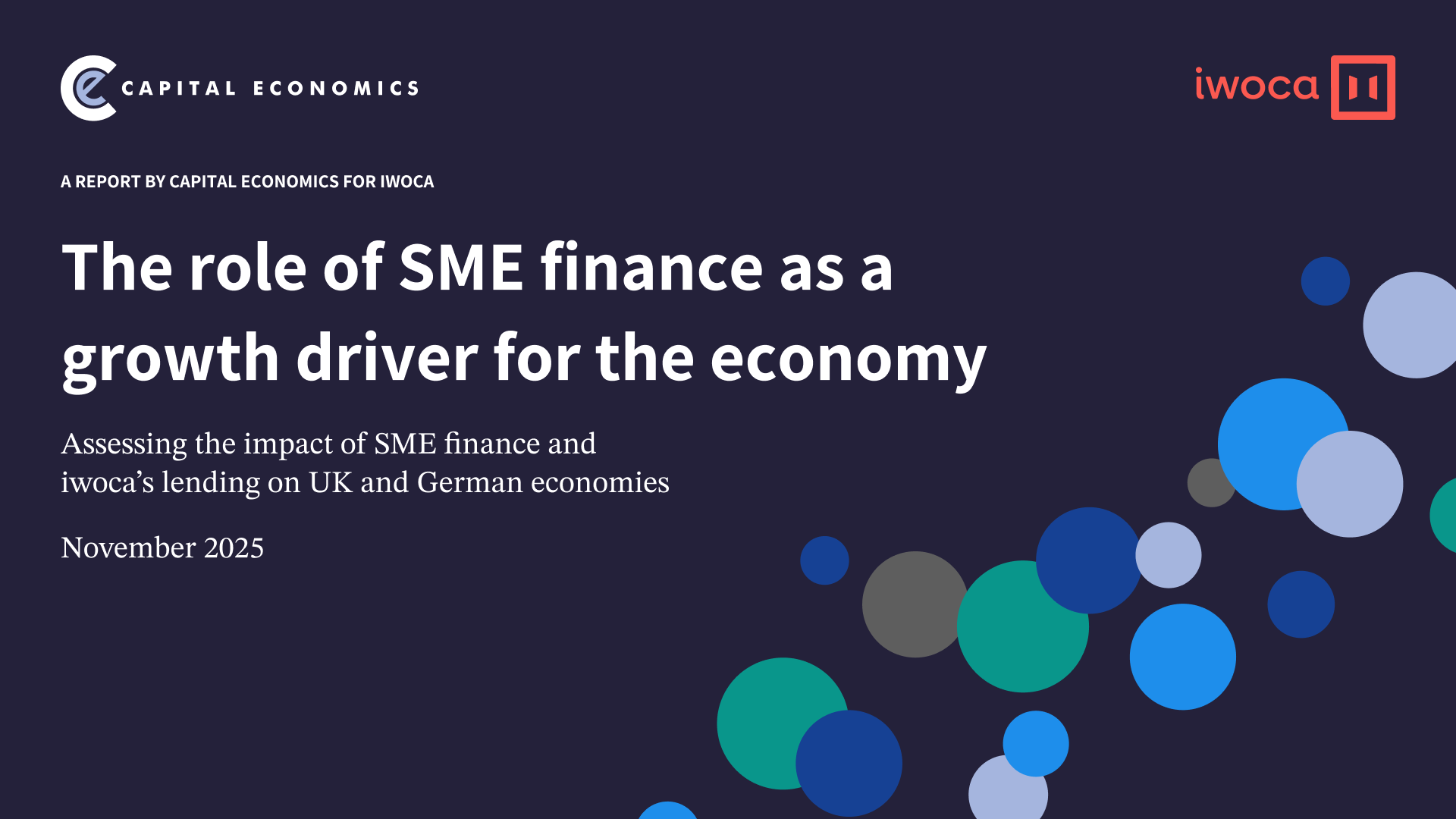Research finds SME revenues grow by a fifth when given access to loans
5
min read
Research finds SME revenues grow by a fifth when given access to loans
November 12, 2025






- New research from Capital Economics finds that taking a loan increases SME monthly revenues by 19% on average
- The report also finds that iwoca has supported £2.8 billion in economic value (GVA) and almost 50,000 jobs across the UK in the past year
- iwoca commits to providing at least £1.5bn to UK SMEs in 2026 to drive forward economic growth (including £300m to SMEs in construction)
New research from Capital Economics, commissioned by SME lender iwoca, finds that SMEs receiving a loan can increase their monthly revenues by an average of 19%.
For the first time, the analysis, based on data from current accounts of thousands of iwoca customers, finds that taking a loan is associated with an increase in revenues of nearly a fifth (19%) within a year, compared to if no financial support had been accessed.
Solving the SME finance gap
The report points to a major shift in the structure of the SME lending market over the past decade. When iwoca launched in 2012, the UK’s five largest banks accounted for around 60% of SME lending, compared to 40% from challenger and specialist banks. That balance has now reversed, with new lenders playing a far greater role. iwoca’s market share has more than tripled in recent years, from 1 in every 1,000 SME loans in 2022 to over 3.5 in every 1,000 last year.
To meet growing demand, iwoca has committed further funding to the tune of £1.5bn for UK SMEs by the end of 2026, including £300m of support for construction firms to help deliver the government’s target of building 1.5 million new homes by 2029.
iwoca contribution to UK economy
Since launching in 2012, iwoca has lent over £4.5 billion to 100,000 UK businesses, providing crucial support to sectors that power the economy. The report finds that iwoca’s lending supported £2.8 billion in economic value (GVA) and almost 50,000 jobs across the UK in the past year alone.
In the past year, 75% of iwoca’s loans went to companies located outside of London. For every £100 iwoca lends, £210 of value is created in the UK economy – underscoring the role of specialist lenders in driving small business growth nationwide.
Christoph Rieche, CEO and co-founder of iwoca, said: “SMEs make up 99% of UK businesses and over half of our economy, but too many are still locked out of the finance that would help them invest and innovate. This report, for the first time, shows the huge upside we create by fixing that gap. It proves what we see every day - when small businesses can access the finance they need, they grow, hire and drive prosperity in their communities. Access to finance isn’t just a business issue - it’s a productivity issue for the whole economy.”
Andrew Evans, Deputy Chief Economist at Capital Economics, said: “Our analysis reveals just how powerful access to finance can be for small firms. Businesses receiving an iwoca loan saw inflows to their accounts rise by almost 20% within a year – an impact that is rarely captured in data. It’s evidence that flexible, fast lending isn’t just helping individual firms grow, but boosting output, jobs and tax revenues across the economy. As awareness of non-bank lenders grows, there is significant potential for this part of the market to help drive UK productivity.”
RESEARCH: Full report from Capital Economics can be found here.


How to use payroll loans for small businesses

Business Loans comparison: High Street Banks vs. Alternative Lenders
Comparing the pros and cons of getting a business loan from traditional lenders and alternative finance providers, including how they differ in application processes, speed of funding, rates and flexibility.

Working capital ratio
Discussing the importance of calculating your company’s working capital ratio, what it represents and how to improve the ratio.





